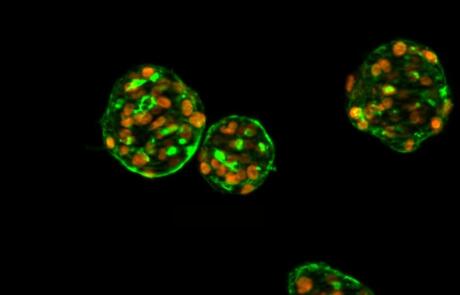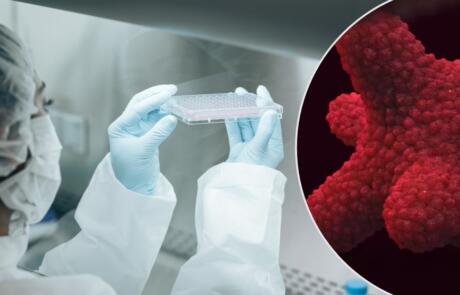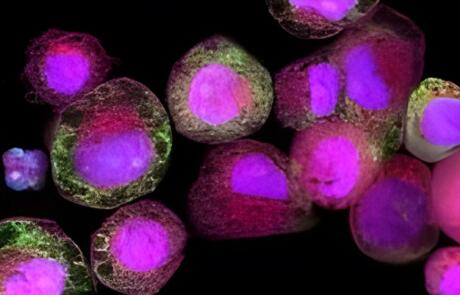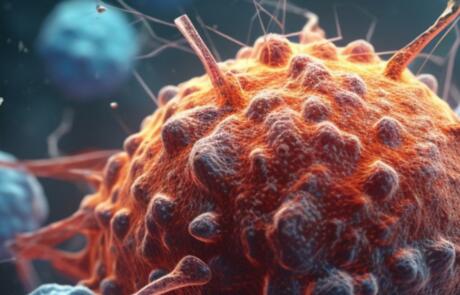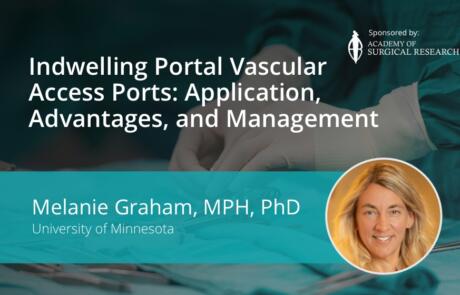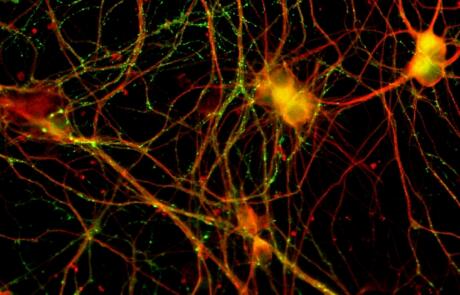Explore Pharmacology & Toxicology Webinars
Explore Pharmacology & Toxicology Webinars
Translational T Cell Talks: Scaling for the Future
June 2024
UpcomingJoin STEMCELL’s Translational T Cell Talks on June 11, 2024 for a half-day event featuring presentations on CAR T cell research, new protocols, educational content, and special promotions.
Innovative Approaches to Assessing Thyroid Disruption: The 3D Human Thyroid Microtissue Model
Thursday, May 9, 2024
Sponsor: LifeNet Health LifeSciences
Partner: Scientist.com
Dr. Chad Deisenroth, PhD, from the US EPA, introduces an advanced human in vitro 3D thyroid microtissue model designed to evaluate thyroid hormone disruption, addressing current challenges with existing models.
Applications of Human Intestinal Organoid Cultures in Drug Discovery
Wednesday, April 3, 2024
Sponsor: STEMCELL Technologies Inc.
Partner: Scientist.com
Join STEMCELL TEchnologies’ experts as they discuss the use of human intestinal organoid cultures in drug discovery and toxicity testing.
Next-Generation Safety Assessment Tools for Advancing In Vivo to In Vitro Translation
Wednesday, February 28, 2024
Sponsor: ImmuONE Limited
Partner: Scientist.com
In this webinar, Dr. Louis Scott discusses the morph_ONE™ assay, a novel tool for in vitro safety assessment in drug development.
Essential Bruker NMR Trainings 2024
Webinar Series
January - June 2024
Ongoing
Join Bruker experts online for 1 hour every month in this essential training program designed for NMR Scientists.
How to Better Predict Potential Drug Interactions Early in the Discovery Process
Thursday, December 14, 2023
Sponsor: INDIGO Biosciences
Partner: Scientist.com
Join our webinar to discover effective strategies for early prediction of drug-drug interactions using in-vitro assays and gene expression studies.
Assessing Antigen-Specific T-Cell Functionality with Dendritic Cell/CD8⁺ T Cell Co-culture
Tuesday, December 12, 2023
Sponsor: STEMCELL Technologies Inc.
Partner: Scientist.com
In this webinar, learn how to set up DC and CD8⁺ T cell co-culture experiments and assess T cell proliferation and killing activity.
Indwelling Portal Vascular Access Ports: Application, Advantages, and Management
Thursday, December 7, 2023
Partner: Academy of Surgical Research
In this webinar, Melanie Graham, MPH, PhD highlights the benefits and reliability of using vascular access ports (VAPs) in animal models.
Advancing Disease Modeling for Drug Discovery by Modulating iPSCs with CRISPR and Neuronal Differentiation
Wednesday, November 29, 2023
Sponsors: Synthego, BrainXell Inc.
Partner: Scientist.com
Explore applications of CRISPR and iPSCs in disease modeling and drug discovery in our upcoming webinar with Synthego and BrainXell.
Successful Modification of a Rodent Surgical Procedure and Device for Vascular Access in Minipigs (Vascular Access Button)
Thursday, November 16, 2023
Partners: Academy of Surgical Research, European Academy of Laboratory Animal Surgery (EALAS)
Adrian Zeltner discusses the innovative use of the Rat Vascular Access Button in Göttingen Minipigs to streamline blood sampling and infusion.
The Use of Vascular Access Buttons in Rabbits for PK/TK Studies
Thursday, October 19, 2023
Partner: Academy of Surgical Research
Jon Ehrmann presents the use of vascular access buttons in rabbits as a solution to challenges in venipuncture, enhancing blood collection, and intravenous administration for pharmacokinetic studies.
Molecule Transport across Cell Membranes: Electrochemical Quantification at the Microscale
Wednesday, October 18, 2023
Sponsors: HEKA Elektronik GmbH, Harvard Bioscience, Inc.
In this webinar, Dr. Sabine Kuss discusses the importance of transmembrane molecule exchange and how to detect and quantify membrane transport of molecules in cells.

